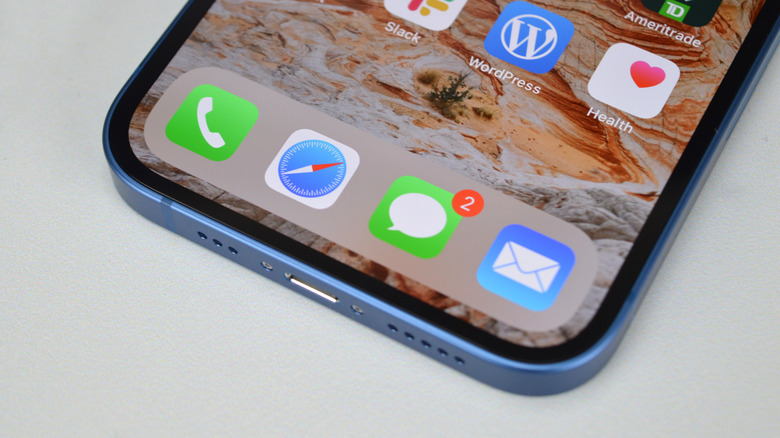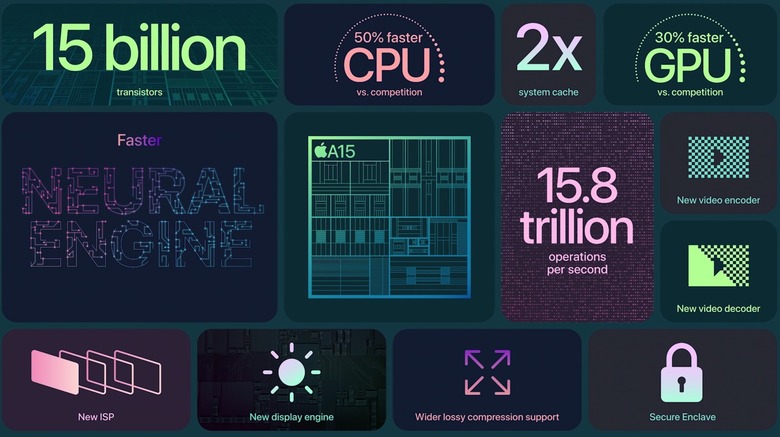iPhone 14 Pro's New A16 Bionic Chip may Not Be A Big Upgrade Over The A15
Most iPhone 14 rumors are painting the same picture more than three months ahead of the expected September launch event. The iPhone 14 and the iPhone 14 Pro models will have different designs, which is something Apple has done before to differentiate between cheaper and more expensive models. But for the first time this year, the non-Pro iPhone 14 models will not share the same hardware as the Pro versions — specifically, the A16 Bionic chip that Apple should introduce this year.
Most leaks say that the iPhone 14 and iPhone 14 Max will feature a variation of the A15 Bionic processor. The iPhone 14 Pro and iPhone 14 Pro Max will get the A16 chip instead. And now an Apple insider has shed more light on the new A16 System-on-Chip (SoC), claiming the new processor will deliver a limited upgrade over its predecessor.
iPhone 14 Pro’s new A16 Bionic chip rumors
We heard about Apple's decision to use both A15 and A16 chips inside the iPhone 14 series months ago. But it was just a few days ago that a leaker delivered more details about the A16 Bionic's specs. According to that person, the iPhone 14 Pro's chip will continue to be a 5nm SoC, just like the A15 before it.
He added that the A16 Bionic will feature a better CPU and GPU and support LPDDR5 RAM. The latter would be a first for the iPhone, which is currently using LPDDR4X memory.
(2/4)
A15 is made by TSMC N5P. Because N4 has no advantages vs. N5P, it's reasonable for A16 to stick with the N5P, implying that improvements in performance and power-saving from A16 should be limited. Naming iPhone 14 Pro's chip as A16 is more of a marketing purpose.— 郭明錤 (Ming-Chi Kuo) (@mingchikuo) May 29, 2022
Reacting to the new leak, well-known analyst Ming-Chi Kuo provided additional remarks on the A16 Bionic. The leaker says that TSMC made the A15 Bionic on its N5P node because N4 has no advantages over it. Therefore, it's "reasonable" for A16 Bionic to stick with the N5P process technology. As a result, the iPhone 14 Pro will get limited performance and efficiency gains over its predecessor.
Kuo further said that naming the iPhone 14 Pro chip as A16 Bionic is more of a marketing strategy.
(4/4)
There is nothing bad with naming a minor-upgrade CPU of all-new design MBA as M2, which can also help new MBA sales. But if M2 series aims to bring great upgrades vs. M1 series and further enhance Apple Silicon's brand image, using 2023 N3/N4P wafer for M2 is better.— 郭明錤 (Ming-Chi Kuo) (@mingchikuo) May 29, 2022
The analyst made similar claims about the M2 chip powering the redesigned MacBook Air that's coming this year. He said the 2022 MacBook Air's SoC encounters the same limitations as the A16. Therefore, Kuo says that Apple should not move to the new M2 SoC name for the upcoming Air. The laptop's new design should be a big selling point for the handset.
Kuo added that Apple could save the M2 launch for the next MacBook Pro refresh (14-inch and 16-inch).
The A15 Bionic still has no rival
Apple's SoC changes for this year's iPhone series might be unprecedented. We've reached a point where it'll be more challenging to deliver big chip upgrades every year.
TSMC's new N3 and N4P chip manufacturing technologies won't be ready until next year or even later. Apple will surely use the technology for next-gen A- and M-series SoCs, no matter what it'll call them.
While Apple's decision to stick with A15 Bionic SoCs for the regular iPhone 14 models might seem surprising, it's worth remembering that A15 has no rival. Last year's A15 Bionic still outperforms anything from Android in benchmark and real-life speed tests.
Moreover, Samsung has been at the center of a significant SoC controversy with its Galaxy S22. Users caught the company slowing the phone down to prevent overheating and preserve battery life. And they found Samsung was cheating in benchmarks. Even with the cheating, the Galaxy S22 could not touch the A15 Bionic. The Exynos 2200 version even failed to outperform the iPhone 11's A13 chip.
When the iPhone 14 Pro brings over the A16 Bionic and its reportedly limited speed gains, it'll still be better than anything available from Android devices. The A15 Bionic will just be the next best thing. And a version of the A15 Bionic will power the cheaper iPhone 14 models.
We're only speculating based on these recent A16 Bionic leaks, however. We can't confirm any of these iPhone 14 Pro rumors at this time.
More iPhone coverage: For more iPhone news, visit our iPhone 14 guide.

